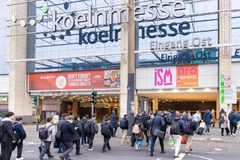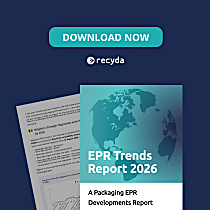LyondellBasell and Greiner Packaging partner on advanced recycled Nescafé capsules

08 Feb 2022 --- LyondellBasell and Greiner Packaging are producing Nescafé coffee capsules from polymers based on advanced recycled post-consumer material. These polymers, branded CirculenRevive, are made using a chemical recycling process that converts plastic waste into feedstock for new polymers using a mass balance approach.
“We believe in the future, as the availability of the advanced recycled material grows, the number of capsules based on this material will also grow,” Michael Frick, director of global key account management at Greiner Packaging, tells PackagingInsights.
“In general we see a bright future for any kind of alternative plastic material that makes products more [environmentally] sustainable and creates a circular plastic packaging market.”
With Greiner Packaging’s support, LyondellBasell will use the polymers to make coffee capsules for Nestlé’s Nescafé Dolce Gusto (NDG) machine.

Meeting industry standards
LyondellBasell says the recycled polymers meet the food industry’s “strict” requirements. Both LyondellBasell and Greiner Packaging’s facilities are International Sustainability and Carbon Certification (ISCC) PLUS certified. This global certification provides traceability along the supply chain.
With the mass balance method, LyondellBasell tracks how much advanced recycled material goes into the production of its CirculenRevive products, attributing the recycled content to the final polymer via a Sustainability Declaration.
“CirculenRevive material can be processed just like virgin polypropylene. Therefore, Greiner Packaging did not have to make any changes in the DG capsules manufacturing process,” says Frick. Advanced recycled material has limited availability and is, therefore, more expensive than virgin material, but this could change,” notes Michael Frick at Greiner Packaging.
Advanced recycled material has limited availability and is, therefore, more expensive than virgin material, but this could change,” notes Michael Frick at Greiner Packaging.
Cost considerations
Frick says at the moment, advanced recycled material has limited availability and is, therefore, more expensive than virgin material. “This will, however, change in the future as the availability grows,” he notes.
“Moreover, any additional costs to make a product more [environmentally] sustainable needs to be considered an investment in the future.”
Meanwhile, recycled plastic prices are skyrocketing worldwide, as industries fight for market control to boost their environmental sustainability credentials.
Materials in a loop
When asked about the advantages of recycled plastic capsules over bio-based alternatives, Frick says the concepts are difficult to compare. “The main idea of recycling concepts is to keep materials in a loop, which will consequently reduce the amount of virgin raw materials needed,” he adds.
Gordon Street Coffee recently launched Nespresso-compatible home compostable capsules made of Solinatra, a biomaterial that breaks down as fast as a banana skin. The company maintains the capsules leave behind zero contamination or harmful microplastics.
The World Wildlife Fund recently announced its position on advanced or chemical recycling, labeling it “an emerging technology with unknown environmental and social outcomes.” The NGO released ten principles to help decision-makers determine if and how chemical recycling should be pursued as a plastic waste mitigation tactic.
LyondellBasell previously partnered with Wendy’s to transition a selection of the fast-food restaurant’s plastic-lined paper cups to single-substrate, clear plastic cups for drinks. The clear plastic cups offer a more recyclable alternative to the plastic-lined paper cups’ “limited recyclability.”
By Natalie Schwertheim











